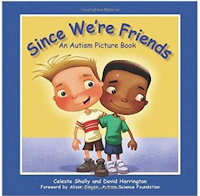The Busy Beaver by Nicholas Oldland
Summary: What happens when you are too busy and careless to think about others? Beaver finds himself "falling" victim to his careless ways and vows to make a change. This book is a great way to introduce Earth Day activities while taking care of others around us.
Vocabulary:
felled - to cut down
hobble - to walk with difficulty
embark - to begin a task or project
rigorous - very strict
rehabilitation - to get back to or restore to a previous state or way
inspect - looking at something very closely and carefully
saplings - young trees
Questions:
1. Why do you think the beaver was so careless?
2. Why didn't anyone visit beaver in the hospital?
3. How did beaver feel when he looked out of the hospital window?
4. How did beaver show his friends that he was sorry?
5. Why was it important for beaver to replace the trees he had felled?
6. What is the lesson in this book?
7. When was a time that you were careless? What happened and how did it affect others?
8. How does this book relate to Earth Day?
In need of a few last minute Earth Day activities? Check these out!






















